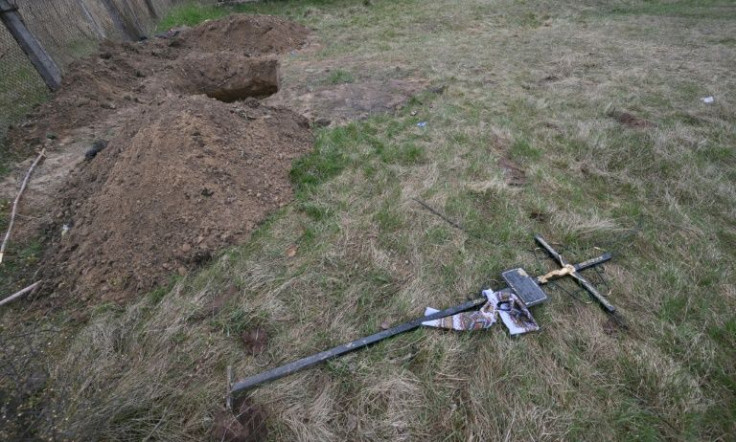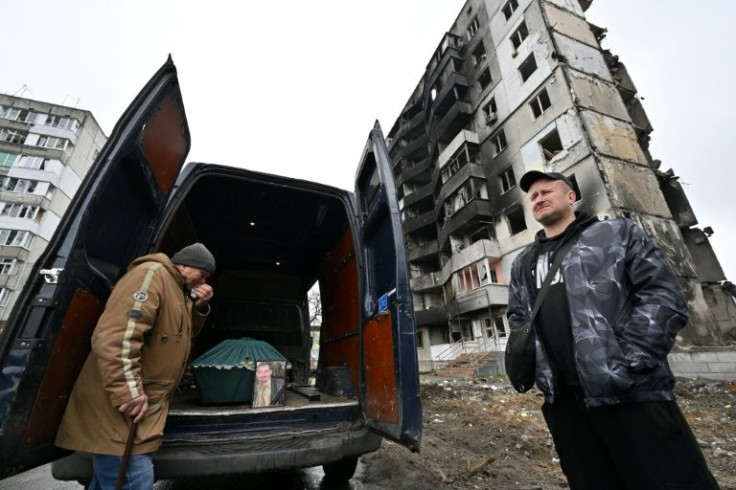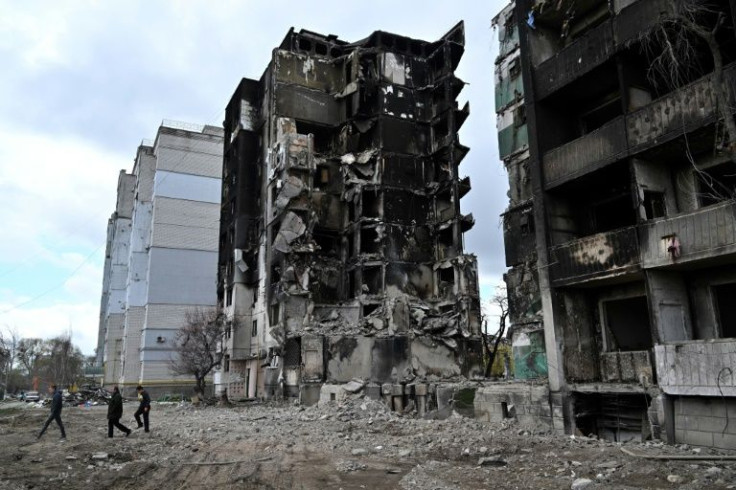Exhumed Bodies Central To Ukraine Probe Of War 'Atrocities'
The empty graves under a leaden Ukrainian sky have passed their secrets to investigators, who exhumed the bodies in them as an effort intensifies to probe war crimes accusations against invading Russian troops.
Authorities said nine civilian corpses, many of which had been shot, were pulled from their makeshift burials on land surrounding a hospital in the devastated town of Borodianka, near Kyiv.
Investigators have collected over 1,000 civilian bodies from streets, yards or temporary graves in the area around the capital -- including some with tell-tale signs like bound hands and feet or gunshot wounds to the backs of their heads, officials said Thursday.

It's part of documenting what Oleksandr Pavliuk, head of the Kyiv regional military administration, termed "atrocities" following the invasion by Russian troops, who were forced to retreat from the area.
"It's all being investigated," Pavliuk told reporters. "There is no final number of civilians killed."
"The forensic experts are now examining the bodies, but what we saw was hands tied behind the back, their legs tied and shot through the limbs and in the back of the head," he said.
French investigators have already begun helping in nearby Bucha, a place that has become a byword for allegations of brutality inflicted under Russian occupation, and the International Criminal Court's chief prosecutor has called Ukraine "a crime scene".

Russia's invasion, and the subsequent accusations of violence directed at civilians, have stoked international condemnation as well as unprecedented economic sanctions.
While the area was under a deadly rain of explosive strikes, civilians carried out the makeshift burials in Borodianka, a practice authorities have said was repeated in other places around Kyiv.

"They were buried by local citizens to prevent the bodies from decaying, to preserve them so it would be possible to do forensics and establish the cause of death," Iryna Prianyshnykova, a national police spokeswoman in the Kyiv region, said of Borodianka.
She said around 60 people were found dead in the town, where a series of high-rise apartment buildings were blasted and blackened -- and in some cases completely collapsed.
One of the temporary grave sites was near a hospital in the town, and after the exhumation a black metal cross and what looked like a soiled blanket and coat remained on the ground.
Officials at the hospital said they could not offer any information about what happened because they had fled the violence that had descended on the town following the February 24 invasion.
The dead included a 15-year-old girl and a 34-year-old man, who police said had gunshot wounds to the chest.
"We found bullet wounds on many of the bodies," Prianyshnykova said, referring to the corpses exhumed near the hospital in Borodianka. "Most of this was with a heavy machine gun."
Though crews have cleared roads of debris and were working to restore utility services, at least one body was still awaiting exhumation by investigators.
Tetiana Slukhaienko, a 58-year-old pensioner, said the corpse under a mound of earth in the field behind her house belonged to a civilian man shot dead in the first weeks of the invasion.
"He lay there for maybe a week or more on the side of the road, there was nobody to bury him," she said, adding the police have been notified and she did not know his name.
"Only when they (Russians) went away, people buried him here, as there was no other place," Slukhaienko added while speaking next to the grave.
His resting place is marked by a white strip of plastic planted in the ground, but there is no name on it.
© Copyright AFP {{Year}}. All rights reserved.





















